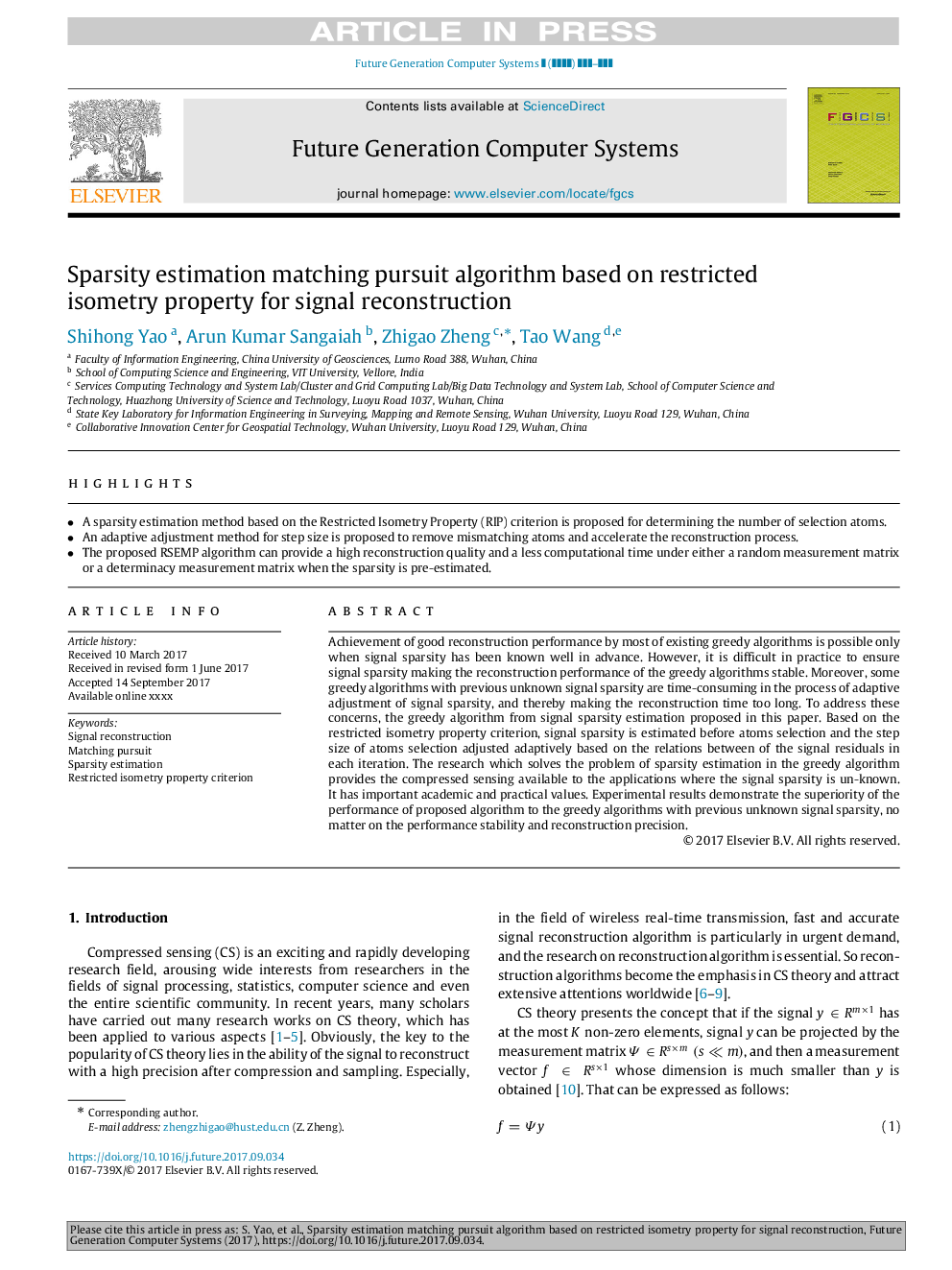| Article ID | Journal | Published Year | Pages | File Type |
|---|---|---|---|---|
| 11002435 | Future Generation Computer Systems | 2018 | 8 Pages |
Abstract
Achievement of good reconstruction performance by most of existing greedy algorithms is possible only when signal sparsity has been known well in advance. However, it is difficult in practice to ensure signal sparsity making the reconstruction performance of the greedy algorithms stable. Moreover, some greedy algorithms with previous unknown signal sparsity are time-consuming in the process of adaptive adjustment of signal sparsity, and thereby making the reconstruction time too long. To address these concerns, the greedy algorithm from signal sparsity estimation proposed in this paper. Based on the restricted isometry property criterion, signal sparsity is estimated before atoms selection and the step size of atoms selection adjusted adaptively based on the relations between of the signal residuals in each iteration. The research which solves the problem of sparsity estimation in the greedy algorithm provides the compressed sensing available to the applications where the signal sparsity is un-known. It has important academic and practical values. Experimental results demonstrate the superiority of the performance of proposed algorithm to the greedy algorithms with previous unknown signal sparsity, no matter on the performance stability and reconstruction precision.
Related Topics
Physical Sciences and Engineering
Computer Science
Computational Theory and Mathematics
Authors
Shihong Yao, Arun Kumar Sangaiah, Zhigao Zheng, Tao Wang,
